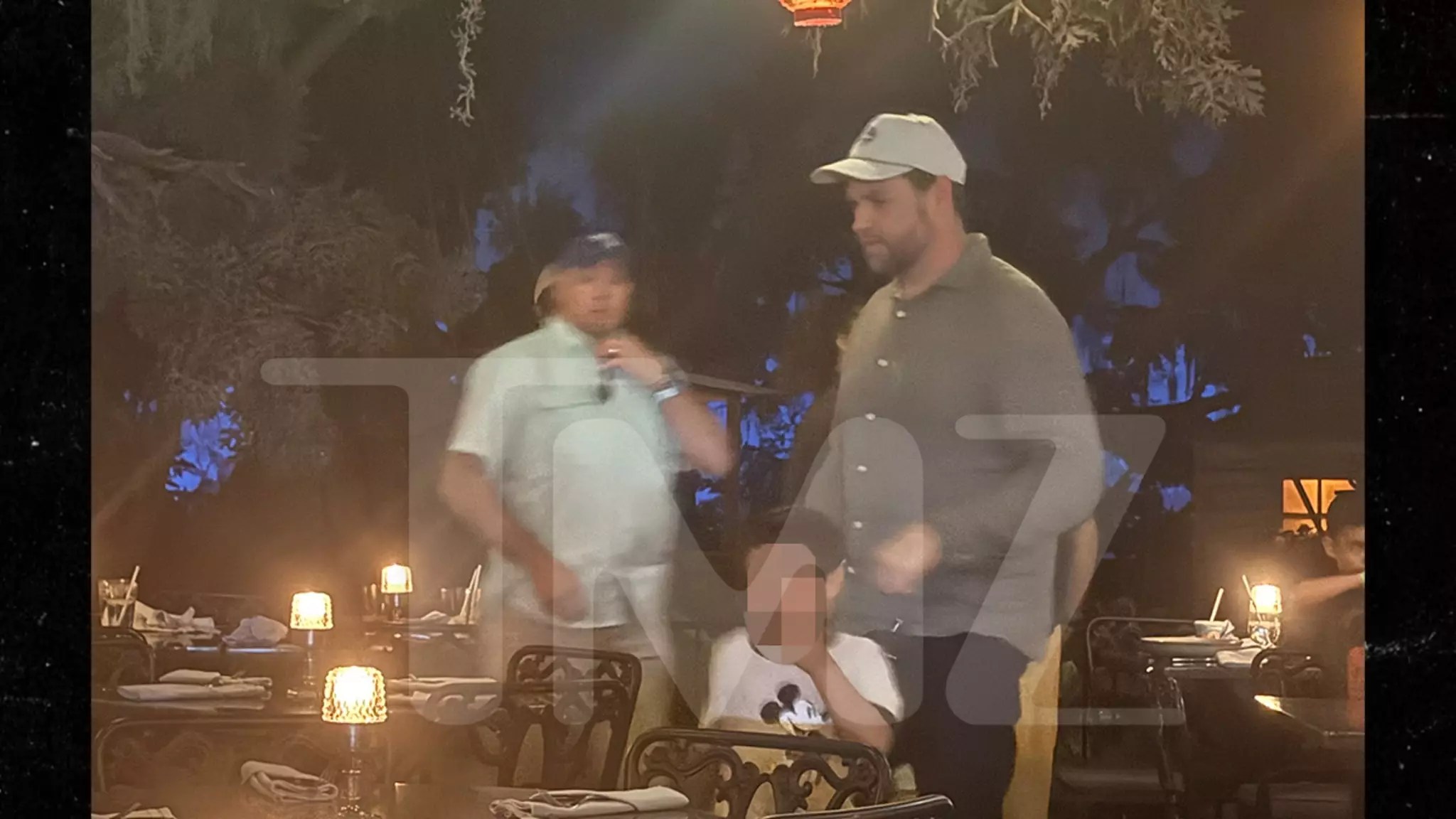Recently, JD Vance, a prominent figure in contemporary American politics, was spotted enjoying a family outing at Disneyland’s Blue Bayou Restaurant. The sighting captured more than a meal; it unveiled a man balancing personal moments with the relentless scrutiny of public life. As he shared a relaxed breakfast with loved ones inside the iconic Pirates of the Caribbean attraction, Vance demonstrated an unapologetic embrace of ordinary family joys amidst the chaos of political debate. His casual demeanor, interacting warmly with his children and receiving affection from fans, underscores a narrative that often gets overshadowed by partisan hostility: politicians are people too, craving moments of normalcy.
This outing is noteworthy not only because of who was there but also because it provides insight into his approach to public perception. Opting to dine openly amidst the crowds indicates a level of confidence and resilience, refusing to retreat into a cocoon of guarded anonymity. Vance’s choice to enjoy a family vacation in a popular theme park reveals a desire to humanize himself beyond the political persona. For an individual frequently targeted and scrutinized, such displays of familial warmth serve as both a strategic shift and a bold statement of authenticity.
Challenging Political Narratives Through Personal Actions
Vance’s decision to revel in personal leisure activities—teetering on the edge of controversy by engaging in rides like “Tiana’s Bayou Adventure”—seems calculated to counter perceptions of aloofness or disconnection from everyday Americans. While critics like California Governor Gavin Newsom used social media to mock his leisure, hinting at larger political disputes surrounding immigration policies, Vance remained unfazed. Instead of engaging in incendiary replies, he quietly showcased an alternative image: one of resilience, familial warmth, and the ability to enjoy life beyond the battlefield of political rhetoric.
There is a profound message in Vance’s actions. Despite being a polarizing figure, he demonstrates that political identity does not require surrendering personal joy. His relaxed attitude, especially given the security presence—Secret Service agents and sniffer dogs—conveys not just a sense of confidence but also a defiance against the chaos often associated with public service. It’s a reminder that personal authenticity can exist side by side with political combativeness.
Beyond the Surface: A Deeper Reflection on Leadership and Humanity
What does JD Vance’s Disneyland visit reveal about leadership? It highlights the importance of balancing public duties with private life. Politicians, much like anyone else, need reprieve—an escape from the relentless pressure to perform and be always “on.” Vance’s choice to spend a morning with his family in a place that symbolizes joy and innocence speaks volumes about his understanding of the human side of leadership.
Critics may dismiss such outings as mere publicity stunts, but they overlook the profound significance of maintaining genuine personal relationships amidst the turbulence of political life. In a societal landscape often characterized by polarization, Vance’s candid display of family affection and normalcy can foster a healthier perception of public figures—less as distant officials and more as relatable individuals navigating the complexities of life. This outing, in essence, serves as a quiet act of defiance against the ever-present negativity, emphasizing that resilience is not only about standing firm in ideological battles but also about preserving one’s humanity in the process.







Leave a Reply